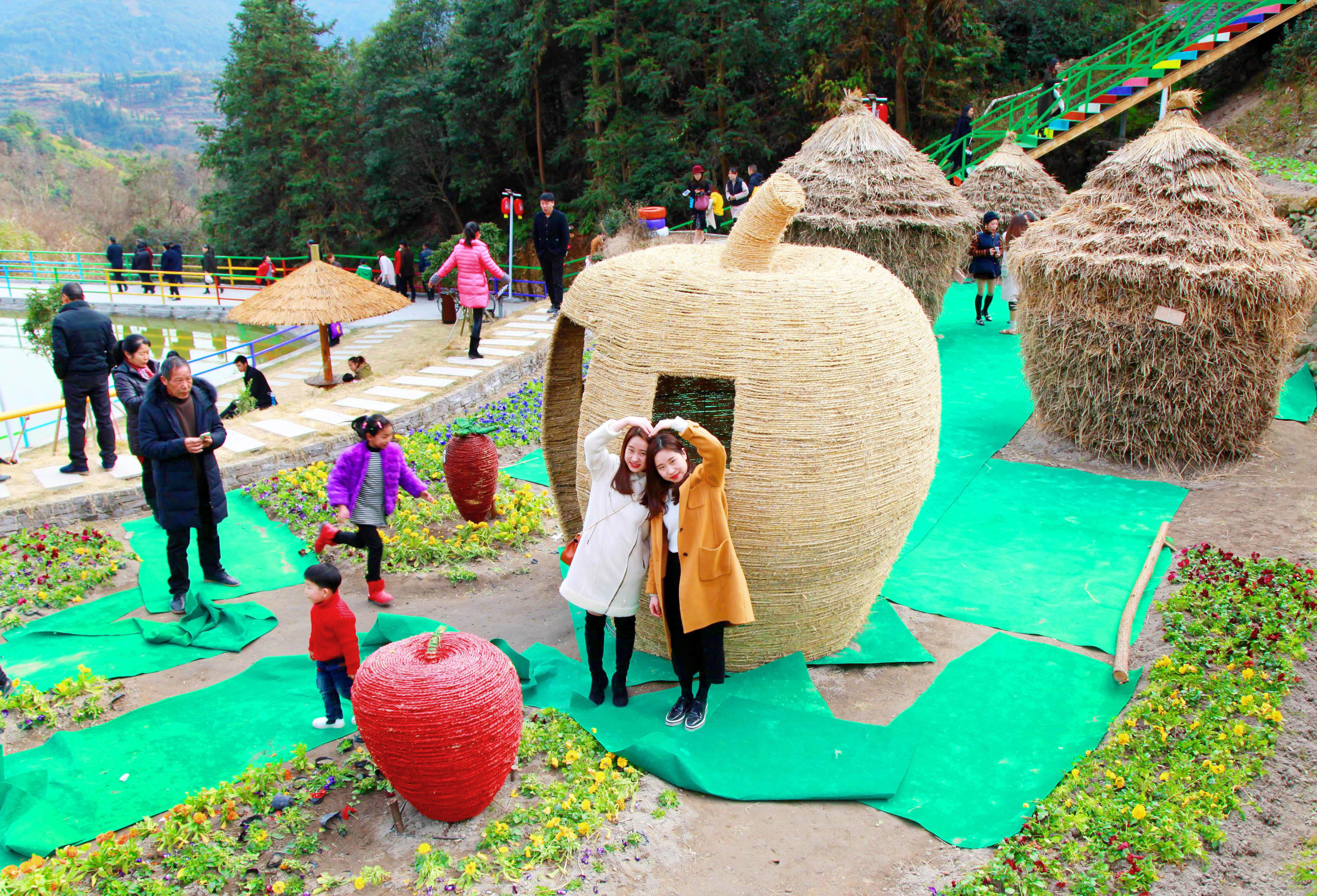Exploring effective ways to promote rural revitalization

Tourists amuse themselves at an agricultural sightseeing garden at Lantianhu Village in Zhejiang Province. Construction of ecological gardens has promoted the sustainable development of rural economy.
The Forum on Rural Revitalization Strategy and Future Rural Development was held on Feb. 3 in Jinan, Shandong Province. Attending scholars deeply understood the connotation and significance of the strategy while exploring effective ways to implement it.
Zhou Zhonggao, deputy secretary of the Leading Party Members’ Group at the Shandong Federation of Social Science Circles, said that the strategy of rural revitalization will accelerate the development of urban-rural integration and ensure the realization of the Two Centenary Goals. Scholars should provide intellectual support for the implementation of the strategy, from the layout of building a moderately prosperous society in all respects, turning China into a modern socialist country and realizing the Chinese dream, Zhou said.
The research of Lu Huilin, a sociology professor at Peking University, found that villages still play an important role in Chinese society and will continue to be places where Chinese peasants make a living as well as achieve their life goals.
Chen Chengwen, a professor of finance and public administration at Jiangxi University of Finance and Economics, said that rural revitalization is a process of completely changing the rural social strutureand modernizing social governance.
Wu Chongqing, director of South China Rural Research Center at Sun Yat-Sen University, said that proper measures may strengthen the strategy, such as prioritizing agricultural and rural development, conducting diversified forms of moderate scale management and achieving an organic link between small peasant households and modern agricultural development. The key to rural revitalization is to promote human quality and capability, which depends on education, Wu said.
Scholars deemed that urban and rural social transition should be connected while implementing rural revitalization. At the level of urbanization, urban-rural social and economic integration should be achieved. Matched institutional innovation is also required in the process of urbanization to establish a society of urban-rural integration.
(edited by YU HUI)
